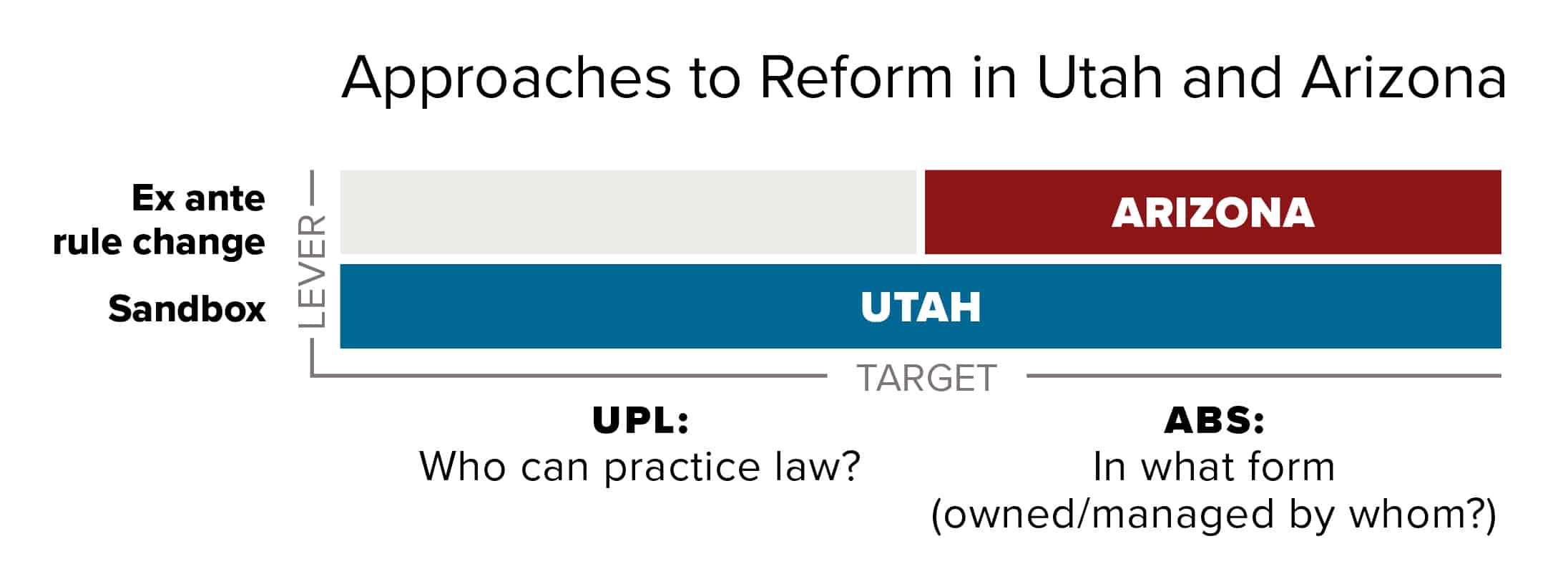LATEST UPDATES
Menu
In the face of the yawning justice gap, the question for policymakers–in this case state supreme courts–should not be whether to move forward with regulatory reform, but how to move forward with regulatory reform. There are many different options on the table but we will focus on the three which have gained the most traction across the country.

Several states are currently trying one or more of the following three approaches.
As states move forward with different reform approaches, we are seeing the “laboratories of democracy” in action. And, we can begin to see how different choices may influence the resulting legal market developments. In 2020, both Utah and Arizona approved significant changes to the rules governing legal business and practice. In 2022, the Rhode Center published the first comprehensive report studying new providers in Utah and Arizona. We have also created a clearinghouse, providing the only regularly updated repository of entities authorized in both Utah and Arizona.

is spurring substantial innovation in ownership structures and service models, with lawyers playing central roles . . .
with a major role for technology and other innovations . . .
to mostly serve consumers and small businesses . . .
at times to serve low-income populations, but only in Utah . . .
and without evidence of substantial consumer harm.

Changing the rules governing legal practice is only one way to re-regulate legal services. It is also possible to develop entirely new approaches to regulation. The Rhode Center has published a regulatory-choice framework for policymakers looking to move to a more sensible approach to legal regulation. Similarly, Professor Elizabeth Chambliss also makes the case for an “evidence-based” approach to lawyer regulation.
